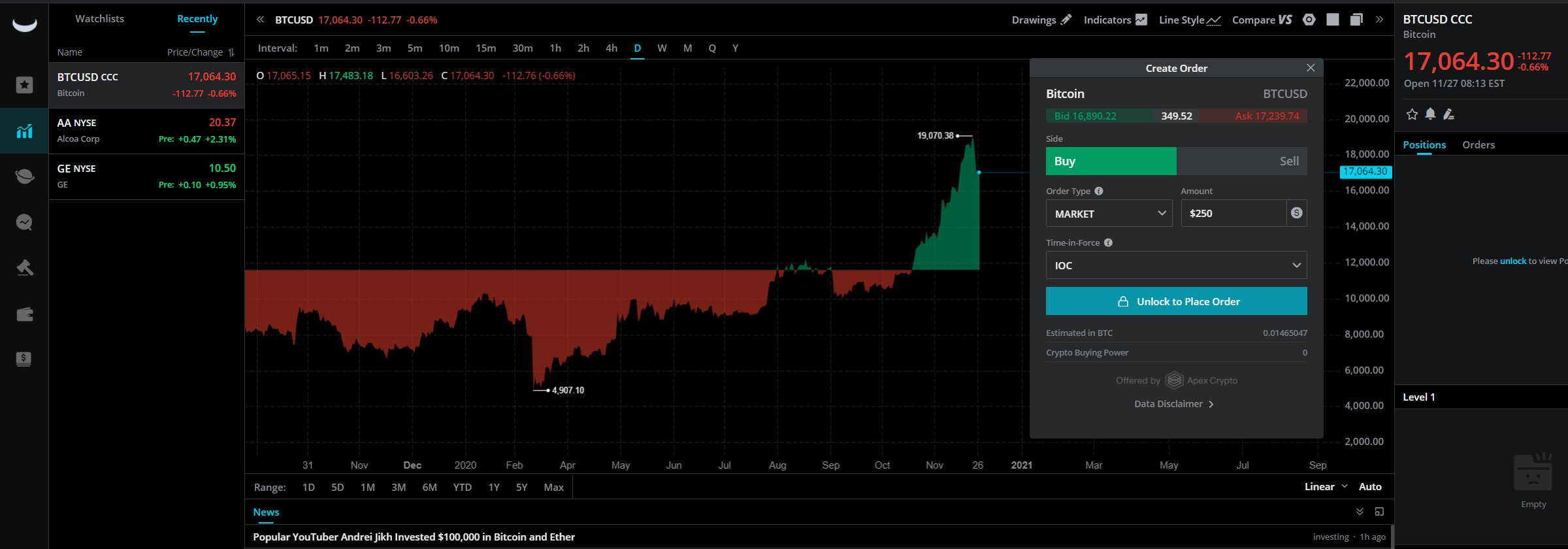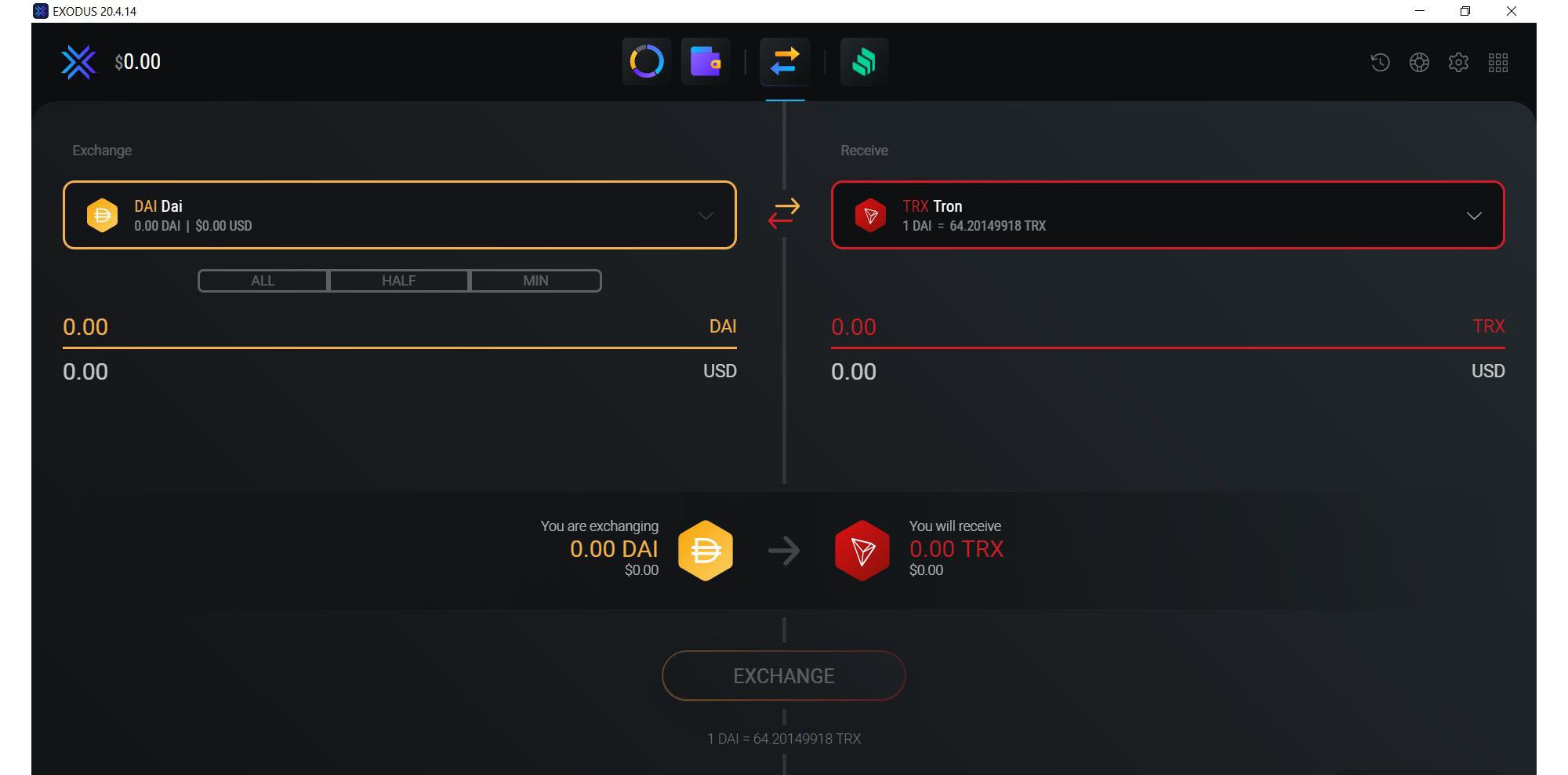Introduction
Welcome to the world of cryptocurrency! In recent years, digital currencies like Bitcoin and Ethereum have revolutionized the way we think about money and financial transactions. With their decentralized nature and potential for substantial returns, cryptocurrencies have gained immense popularity among investors of all ages.
However, if you’re considering investing in cryptocurrencies, you may be wondering about the age requirements involved. How old do you have to be to buy crypto? This article aims to provide you with clarity on this matter.
Before diving into the age requirements, it’s essential to understand what cryptocurrency is and how it works. Cryptocurrency is a type of digital or virtual currency that utilizes cryptography for security. It operates on a technology called blockchain, which is a decentralized and transparent public ledger.
Unlike traditional fiat currencies, which are issued and regulated by central banks, cryptocurrencies are decentralized and not controlled by any central authority. This decentralized nature is one of the reasons why cryptocurrencies have gained immense popularity globally, as it allows for greater freedom and accessibility.
Now, you might be wondering why age requirements are even necessary for buying cryptocurrencies. The primary reasons are regulation and legal requirements. Due to the potential risks involved, governments and regulatory bodies have implemented certain age restrictions to protect investors, particularly minors, from financial losses and fraudulent activities.
Regulation and legal requirements vary from country to country. In many jurisdictions, individuals under a certain age are considered minors and are not legally allowed to engage in financial transactions without proper parental consent or supervision. These regulations aim to prevent underage individuals from making uninformed investment decisions and safeguard their financial well-being.
When it comes to buying cryptocurrencies from exchanges, age requirements are typically in place to ensure compliance with regulatory obligations. Exchanges, which act as platforms for buying and selling cryptocurrencies, are often required to follow know-your-customer (KYC) and anti-money laundering (AML) regulations. These regulations may include age verification processes to mitigate the risk of illicit activities such as money laundering and fraud.
Understanding Cryptocurrency
Before delving into the age requirements for buying cryptocurrencies, it’s important to have a solid understanding of what cryptocurrency is and how it works. Cryptocurrency is a digital or virtual currency that utilizes cryptography for secure financial transactions and control the creation of additional units.
At its core, cryptocurrency operates on decentralized technology called blockchain. A blockchain is a transparent and distributed ledger that records all transactions made with a particular cryptocurrency. This ensures transparency and security, as all transactions are verified and stored across multiple nodes in the network.
One of the key features of cryptocurrency is its decentralization. Unlike traditional fiat currencies, which are controlled by central banks and regulated financial institutions, cryptocurrencies operate independently of any governing authority. This means that cryptocurrencies are not subject to the policies and interventions of government entities, offering individuals greater financial autonomy.
Cryptocurrencies are created through a process known as mining. Miners use powerful computers to solve complex mathematical problems, validating transactions and adding them to the blockchain. In return for their computational efforts, miners are rewarded with new units of the cryptocurrency they are mining.
Bitcoin, created by an anonymous individual or group of individuals using the pseudonym Satoshi Nakamoto, was the first and most well-known cryptocurrency. Since the creation of Bitcoin, thousands of other cryptocurrencies, commonly referred to as altcoins, have emerged, each with its unique features and purposes.
While cryptocurrencies offer numerous advantages, such as fast and borderless transactions and potential investment opportunities, they also come with certain risks. Market volatility, price manipulation, and regulatory uncertainty are just a few of the challenges that crypto investors may face. It is crucial for investors to conduct thorough research and carefully consider these risks before diving into the cryptocurrency market.
Furthermore, it’s worth noting that the adoption and acceptance of cryptocurrencies vary across different industries and regions. While some businesses and countries have embraced cryptocurrencies as a viable form of payment, others remain skeptical. It’s important to research and understand the legal and regulatory landscape related to cryptocurrencies in your specific jurisdiction.
Now that we have a solid understanding of cryptocurrency, let’s explore the age requirements associated with buying and investing in cryptocurrencies.
Why Age Requirements Exist
The existence of age requirements for buying cryptocurrencies is primarily rooted in regulation and legal considerations. Governments and regulatory bodies have implemented these requirements to protect individuals, especially minors, from potential financial risks and fraudulent activities.
Investing in cryptocurrencies involves a certain level of risk, including the possibility of losing the invested funds. Young individuals may lack the necessary financial knowledge and experience to make informed investment decisions. By establishing age requirements, regulators aim to ensure that individuals have reached a certain level of maturity and understanding before engaging in such speculative investments.
Moreover, cryptocurrencies can be highly volatile, experiencing significant price fluctuations within short periods. This volatility can make investments in cryptocurrencies particularly risky and unsuitable for individuals who may not have the financial stability or risk tolerance to weather the market’s ups and downs.
Additionally, there is a concern that minors may be more susceptible to fraudulent activities and scams in the cryptocurrency space. The decentralized and pseudonymous nature of cryptocurrencies can attract scammers who prey on inexperienced investors. Age requirements help mitigate these risks by preventing minors from engaging in potentially fraudulent transactions and protecting their financial well-being.
Furthermore, financial regulations vary across jurisdictions, and age restrictions align with the legal frameworks in different countries. In many jurisdictions, individuals under a certain age are considered minors and are unable to enter into legally binding contracts without the consent of a guardian or parent. Since investing in cryptocurrencies often involves entering into contracts with exchanges or other service providers, age requirements help ensure compliance with these legal obligations.
Lastly, it is important to note that age requirements are not exclusive to cryptocurrencies. Various financial instruments, such as stocks, bonds, and mutual funds, also have age restrictions in place to protect individuals from potential financial harm. Cryptocurrencies are simply subject to similar regulatory measures to safeguard investors and maintain the integrity of financial systems.
Understanding why age requirements exist can help individuals, particularly young investors, make informed decisions about their cryptocurrency investments. While these requirements may seem restrictive, they play an essential role in ensuring investor protection and maintaining regulatory compliance in the ever-evolving world of cryptocurrencies.
Regulation and Legal Requirements
When it comes to buying and investing in cryptocurrencies, there are specific regulation and legal requirements that individuals must adhere to. These requirements vary depending on the jurisdiction and are in place to ensure investor protection, prevent financial crimes, and maintain the integrity of the financial system.
In many countries, cryptocurrency exchanges, which act as platforms for buying, selling, and trading cryptocurrencies, are required to comply with Know Your Customer (KYC) and Anti-Money Laundering (AML) regulations. These regulations aim to prevent illicit activities, such as money laundering and terrorist financing, by verifying the identity of individuals transacting on the platform.
As part of the KYC process, exchanges often require users to provide personal identification documents, such as government-issued IDs and proof of address. These documents help verify an individual’s identity and age, and in some cases, exchanges may require users to undergo additional verification steps.
The age requirements for exchanges can vary from jurisdiction to jurisdiction. Some countries have set a minimum age limit, typically 18 or 21 years old, for individuals to open an account and engage in cryptocurrency transactions. These age restrictions are in line with the legal definition of adulthood in those respective jurisdictions.
It’s important to note that exchanges have implemented age requirements not only to comply with regulatory obligations but also to protect individuals from potential financial risks. By setting an age limit, exchanges aim to ensure that individuals have reached a certain level of maturity and understanding before entering the cryptocurrency market.
In addition to exchanges, age requirements can also apply to self-custody wallets. Self-custody wallets, also known as hardware wallets or software wallets, are digital wallets in which individuals store their cryptocurrencies and have full control and responsibility over their funds.
Some self-custody wallet providers may impose age restrictions for opening and using their wallets. These restrictions are often in line with legal requirements and aim to ensure that individuals have the necessary legal capacity to manage their cryptocurrency holdings. Age requirements can help prevent minors from making irreversible mistakes or potentially losing their funds due to a lack of understanding or experience.
It’s worth noting that while exchanges and self-custody wallets may have age requirements, there are alternative options available for underage individuals who are interested in cryptocurrencies. These alternatives will be discussed in more detail in a later section.
Understanding the regulation and legal requirements surrounding cryptocurrency transactions is crucial for individuals looking to enter the cryptocurrency market. Adhering to these requirements not only ensures compliance with the law but also helps protect individuals from potential risks and fraudulent activities.
Age Requirements on Exchanges
When it comes to buying cryptocurrencies, most individuals turn to cryptocurrency exchanges. These platforms facilitate the buying, selling, and trading of various cryptocurrencies. However, exchanges typically have age requirements in place to ensure regulatory compliance and protect users, particularly minors, from potential financial risks and fraudulent activities.
The specific age requirements on exchanges can vary, depending on the regulatory framework and legal obligations in each jurisdiction. In many countries, exchanges require users to be at least 18 or 21 years old to open an account and engage in cryptocurrency transactions.
These age restrictions align with the legal definitions of adulthood in the respective jurisdictions. By setting age limits, exchanges aim to ensure that individuals have attained a certain level of maturity and understanding before entering the cryptocurrency market.
When creating an account on an exchange, users are typically required to submit personal identification documents for verification purposes. These documents may include government-issued IDs, proof of address, and sometimes additional information, such as a selfie or proof of income.
The exchange’s verification process allows them to verify the identity and age of the user. By implementing robust KYC procedures, exchanges help prevent fraudulent activities, money laundering, and other illicit transactions. Age verification is part of this process, ensuring that individuals who engage in cryptocurrency transactions meet the necessary legal requirements.
It’s worth noting that some countries have different age limits for certain financial activities, including cryptocurrency trading. For example, in the United States, the age requirement can vary depending on the state. While most states require individuals to be 18 years old, a handful of states set the minimum age at 21.
To comply with these regulations and enforce age requirements, exchanges may request additional information from users, such as a copy of their passport or driver’s license. The exchange’s policies regarding age requirements are typically outlined in their terms of service or onboarding process.
It’s essential for individuals to research and understand the specific age requirements imposed by exchanges in their jurisdiction before attempting to create an account or engage in cryptocurrency transactions. Failure to comply with these requirements may result in account suspension or termination, as well as potential legal consequences.
If you’re underage and interested in investing in cryptocurrencies, it’s important to explore alternative options that are available. These alternatives will be discussed in a later section, providing underage investors with potential avenues to participate in the cryptocurrency market.
Overall, age requirements on exchanges are in place to ensure regulatory compliance, safeguard users, and protect individuals, particularly minors, from potential financial risks associated with cryptocurrency transactions.
Age Requirements for Self-Custody Wallets
While cryptocurrency exchanges are widely used for buying and trading cryptocurrencies, some individuals prefer to have more control and security over their digital assets. This is where self-custody wallets come into play. Self-custody wallets, also known as hardware wallets or software wallets, allow users to store and manage their cryptocurrencies directly, without relying on a third-party platform.
When it comes to age requirements for self-custody wallets, they often align with the legal framework of each jurisdiction. If an individual is considered a minor, they may be subject to restrictions on opening and using self-custody wallets due to legal obligations.
The age requirements for self-custody wallets are primarily in place to protect underage individuals from potential financial risks and ensure that they have the necessary legal capacity to manage their cryptocurrency holdings responsibly.
While self-custody wallets provide individuals with complete control over their digital assets, it also means that they solely bear the responsibility for securing and managing their wallet and cryptocurrencies. This level of responsibility and the potential risks associated with cryptocurrencies can make self-custody wallets less suitable for individuals who may not have the necessary knowledge, experience, or legal capacity to engage in cryptocurrency transactions.
However, it’s important to note that not all self-custody wallet providers impose age restrictions. Some wallet providers may not require users to provide personal information or verify their age during the account creation process. In such cases, individuals, including minors, can create and use self-custody wallets without facing age-related restrictions.
It’s crucial for individuals, particularly young investors, to understand the potential risks and responsibilities associated with self-custody wallets before considering using them. Without the protective measures and oversight provided by exchanges, individuals must take extra precautions to ensure the security and proper management of their cryptocurrencies.
Parents or guardians have a significant role to play in guiding and educating young individuals who are interested in self-custody wallets. It’s essential for parents to have open discussions about the risks involved and provide the necessary guidance to ensure safe and responsible cryptocurrency management.
Considering the age requirements and potential risks, it’s important for individuals, particularly minors, to explore alternative options for participating in the cryptocurrency market. The following section will discuss some of these alternatives, providing underage investors with potential avenues to engage with cryptocurrencies while complying with the legal framework in their jurisdiction.
Ultimately, age requirements for self-custody wallets aim to ensure compliance with legal obligations and protect young individuals from potential financial risks associated with managing their own cryptocurrencies.
Risks for Underage Investors
While the allure of investing in cryptocurrencies may be tempting for underage individuals, it’s important to be aware of the potential risks involved. Investing in cryptocurrencies comes with its own set of challenges, and these risks can be magnified for individuals who may not have the necessary knowledge, experience, or legal capacity to make informed investment decisions.
One of the primary risks for underage investors is a lack of financial knowledge and experience. Cryptocurrencies are highly volatile assets, with prices often experiencing significant fluctuations over short periods. Without a solid understanding of investment principles and risk management strategies, young investors may be more susceptible to making impulsive decisions based on emotions or short-term market trends.
Additionally, there is a lack of regulatory oversight and investor protection in the cryptocurrency market. Unlike traditional financial markets that have well-established regulatory frameworks, the cryptocurrency market is still evolving and subject to risks such as price manipulation, fraud, and security breaches.
Furthermore, the decentralized and pseudonymous nature of cryptocurrencies can make it difficult to trace and recover lost or stolen funds. In cases of scams or hacking incidents, underage investors may face even greater challenges in seeking recourse or recovering their assets.
Age restrictions are in place to protect underage individuals from these potential risks and to ensure that investors have reached a certain level of maturity, understanding, and legal capacity before engaging in speculative investments like cryptocurrencies.
Another risk to consider is the potential impact of market volatility on underage investors. Cryptocurrencies have a history of experiencing rapid and significant price fluctuations, which can result in substantial gains or losses. Young investors may not have the financial stability or risk tolerance to withstand such volatility and may be more susceptible to financial hardships or emotional distress resulting from extreme price swings.
Moreover, underage investors may be more vulnerable to scams and fraudulent schemes prevalent in the cryptocurrency space. The lack of experience and limited understanding of investment principles can make young investors an easy target for fraudsters and manipulators who take advantage of their lack of knowledge and desperation for quick profits.
It’s essential for young investors and their parents to be aware of these risks and take steps to mitigate them. Parents should encourage open communication and provide guidance on responsible investing practices. Engaging in thorough research, diversifying investments, and seeking advice from reputable sources can help mitigate the risks associated with investing in cryptocurrencies.
Considering these risks, underage investors should explore alternative options that align with their age and legal capacity. The following section will discuss some of these alternatives, providing underage individuals with potential avenues to engage with cryptocurrencies while staying within the legal framework and protecting their financial well-being.
Being mindful of the risks and taking a cautious approach will go a long way in ensuring a positive and responsible engagement with cryptocurrencies for underage investors.
Alternatives for Underage Investors
While age restrictions may limit the direct participation of underage individuals in the cryptocurrency market, there are alternative avenues that allow them to gain exposure to cryptocurrencies and the blockchain industry.
Education and Learning: One of the best ways for underage individuals to get involved with cryptocurrencies is through education. Investing time in learning about blockchain technology, cryptocurrencies, and the underlying principles can provide valuable knowledge and insights. There are numerous online resources, tutorials, and courses available that can help individuals, regardless of their age, understand the intricacies of the cryptocurrency market.
Simulation Platforms: Several cryptocurrency simulation platforms allow users, including underage individuals, to practice trading cryptocurrencies without using real money. These virtual trading platforms simulate real market conditions, enabling individuals to test investment strategies, understand market dynamics, and gain practical experience without the risk of financial loss.
Blockchain Projects and Communities: Underage individuals can actively engage with blockchain projects and communities. They can contribute to open-source projects, participate in discussions, or even start their own blockchain-based initiatives. This involvement provides valuable exposure to the industry and opportunities to network with like-minded individuals.
Research and Analysis: Even without direct investment, underage individuals can engage with cryptocurrencies by researching and analyzing different projects and their potential. By staying up-to-date with news, market trends, and technological advancements, they can develop a deeper understanding of the cryptocurrency ecosystem and its potential impact on various industries.
Participate in ICOs and Token Sales through Guardians: Some initial coin offerings (ICOs) and token sales allow underage individuals to participate with the assistance of a legal guardian or parent. The guardian may handle the investment process and ensure compliance with regulations, while also providing guidance and supervision.
Financial Education and Savings: Investing in cryptocurrencies is just one aspect of financial management. Underage individuals can focus on building a strong foundation in financial education, learning about budgeting, saving, and long-term investment strategies. This will not only benefit their overall financial well-being but also prepare them for future investment opportunities.
By exploring these alternative avenues, underage individuals can engage with the world of cryptocurrencies and blockchain technology in a responsible and educational manner. While direct investment may not be feasible due to age restrictions, these alternatives provide valuable learning experiences and opportunities for growth within the industry.
Additionally, parents and guardians play a crucial role in guiding and supporting underage individuals in their exploration of cryptocurrencies. By fostering open communication and providing guidance on responsible financial practices, parents can help facilitate a safe and educational journey into the world of cryptocurrencies.
Tips for Safely Investing in Cryptocurrency
Investing in cryptocurrency can be an exciting endeavor, but it’s important to approach it with caution and take steps to ensure a safe and secure investment experience. Whether you are a novice or experienced investor, here are some tips to help you navigate the cryptocurrency market:
1. Conduct Thorough Research: Before investing in any cryptocurrency, conduct thorough research on the project, team, and underlying technology. Understand the problem the project aims to solve, its competitive landscape, and its potential for long-term growth.
2. Diversify Your Portfolio: It’s essential to diversify your investment portfolio to avoid putting all your eggs in one basket. Invest in a variety of cryptocurrencies to spread your risk and increase your chances of success. Consider investing in different sectors, such as payments, decentralized finance (DeFi), or non-fungible tokens (NFTs), based on your research and risk appetite.
3. Set Realistic Expectations: Cryptocurrency markets are known for their volatility and can experience sudden ups and downs. Set realistic expectations and be prepared for market fluctuations. Avoid making investment decisions based on short-term price movements or speculative hype.
4. Keep Up with Market Trends: Stay informed about the latest market trends and news surrounding the cryptocurrencies you are invested in. This will help you stay ahead of any regulatory changes, technological advancements, or market shifts that may affect your investments.
5. Use Secure Exchanges and Wallets: Choose reputable cryptocurrency exchanges and wallets that prioritize security measures. Look for exchanges that implement two-factor authentication (2FA) and have a strong track record of protecting user funds. Consider utilizing hardware wallets, which offer an extra layer of security by keeping your private keys offline.
6. Practice Proper Security Measures: Take steps to secure your own digital assets. Use strong, unique passwords for your exchange accounts and wallets. Enable additional security features such as biometric authentication or hardware security keys. Regularly update your software and be vigilant against phishing attempts or suspicious links.
7. Beware of Scams and Frauds: Be cautious of fraudulent schemes, phishing attempts, or Ponzi schemes in the cryptocurrency space. Be skeptical of promises of guaranteed returns or unrealistic investment opportunities. Always double-check the legitimacy of projects, websites, or individuals before sharing personal information or making any investments.
8. Learn Technical Analysis: Understanding technical analysis can help you make informed trading decisions by analyzing price charts and historical data. Learn about key indicators, chart patterns, and market trends to improve your timing and decision-making process.
9. Start with a Small Investment: If you’re new to cryptocurrency investing, consider starting with a small amount before investing larger sums. This will give you an opportunity to learn from your experiences and adjust your strategies without risking significant financial losses.
10. Seek Professional Advice: Consider consulting with a financial advisor or cryptocurrency expert who can provide guidance tailored to your specific investment goals and risk tolerance. Their expertise can help you make informed decisions and navigate the complexities of the cryptocurrency market.
By following these tips, you can enhance your safety and awareness while investing in cryptocurrencies. Remember, the cryptocurrency market is dynamic and ever-changing, so it’s important to stay informed, adaptable, and patient in your investment journey.
Conclusion
As the world of cryptocurrency continues to expand and evolve, it’s crucial to understand the age requirements and considerations associated with investing in this digital asset class. Age restrictions exist to ensure investor protection, regulatory compliance, and responsible financial practices.
While the specific age requirements for buying cryptocurrencies may vary from country to country and platform to platform, they generally align with legal definitions of adulthood. Exchanges and self-custody wallet providers implement these requirements to mitigate potential risks and ensure compliance with regulatory obligations.
For underage individuals who are interested in cryptocurrencies, there are alternative avenues for involvement, including education, simulation platforms, community participation, and research. These alternatives offer valuable opportunities to gain knowledge, experience, and exposure to the cryptocurrency industry, even if direct investment may not be feasible.
Regardless of age, it’s essential to approach cryptocurrency investing with caution and take proactive measures to ensure a safe and secure experience. Thorough research, diversification, setting realistic expectations, using secure exchanges and wallets, and practicing proper security measures are all crucial components of responsible cryptocurrency investing.
Additionally, understanding the risks associated with the cryptocurrency market, such as market volatility and the potential for scams, is vital. By being aware of these risks and seeking guidance from professionals, individuals can navigate the market with greater confidence and make informed investment decisions.
As the cryptocurrency landscape continues to evolve, so too will the regulatory frameworks and age requirements. It’s important for investors to stay informed about these changes and adapt their investment strategies accordingly.
Finally, parents and guardians play a pivotal role in guiding and supervising underage individuals who are interested in cryptocurrencies. By fostering open communication, providing financial education, and encouraging responsible practices, parents can help young investors make informed decisions and protect their financial well-being.
With proper knowledge, research, and risk management, individuals of all ages can participate in the world of cryptocurrencies in a responsible and informed manner. Whether you are a veteran investor or someone just starting out, embracing these principles will help you navigate the exciting and ever-changing landscape of cryptocurrencies.

























